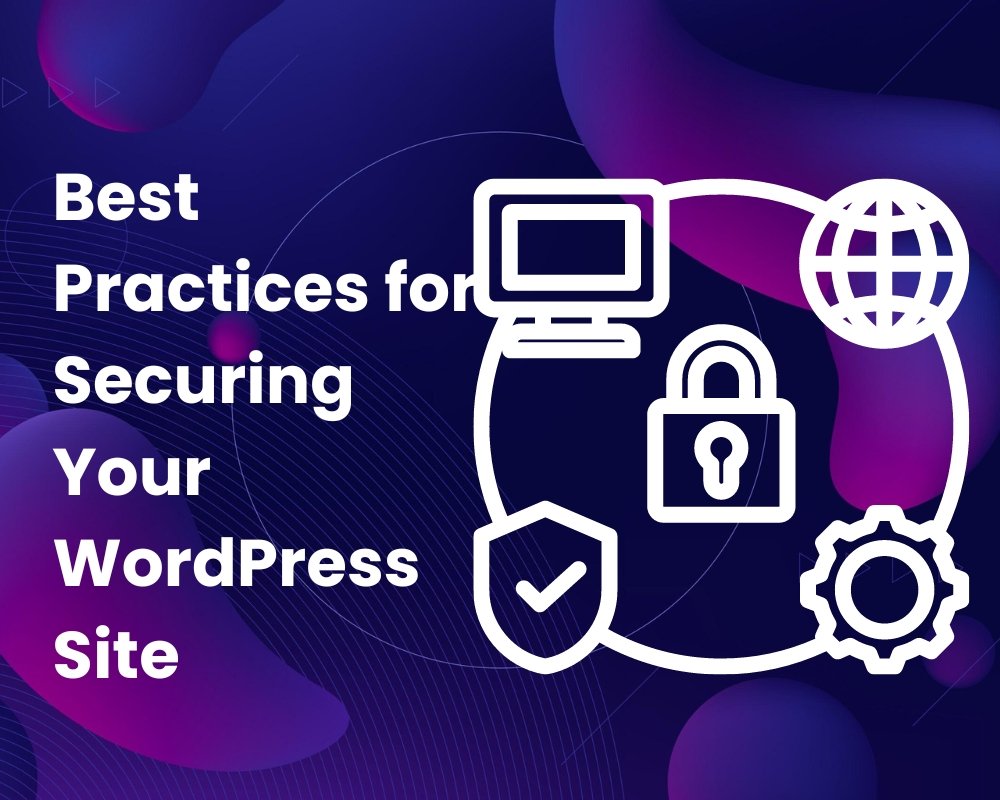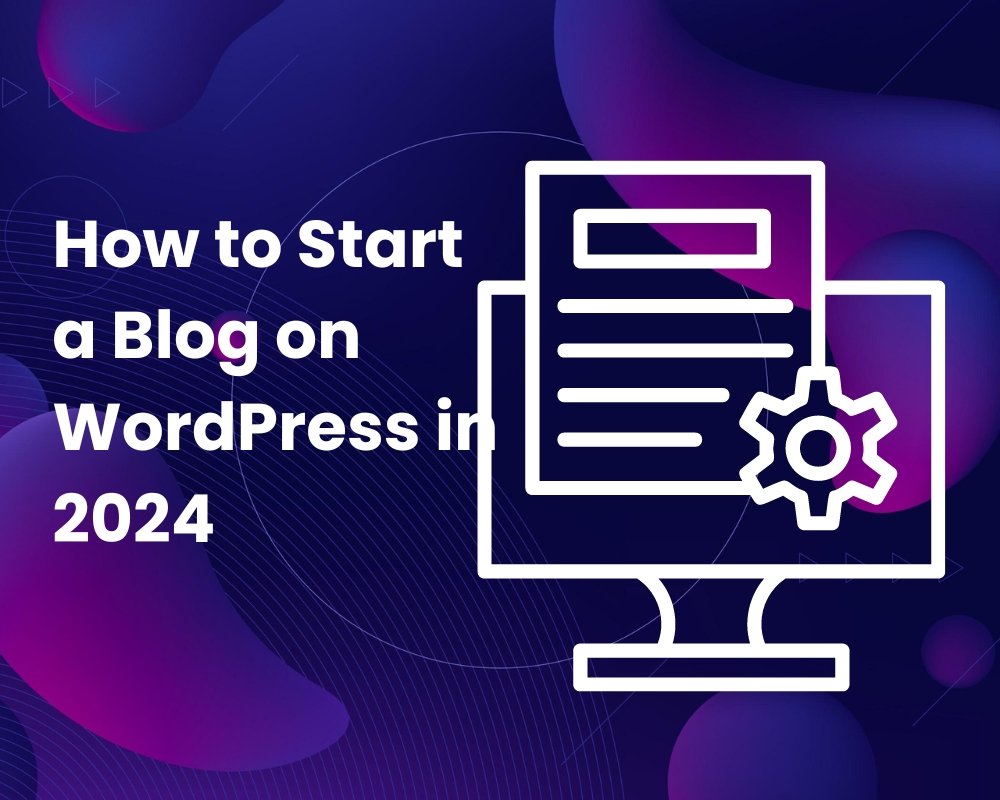Hostinger vs Namecheap: A Comprehensive Comparison for 2024
Need Assistance with Website creation?
Need support in crafting your website? We’re here to help! Our expertise ensures seamless development tailored to your needs.
Latest elementor templates
-
 NEW!Contenor
NEW!Contenor -
 NEW!tradepro
NEW!tradepro -
 NEW!podnest
NEW!podnest -
 NEW!artistry
NEW!artistry -
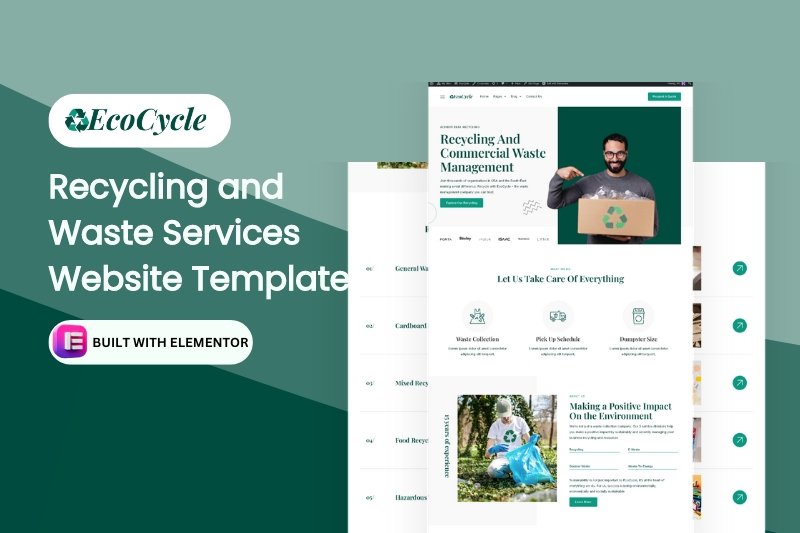 NEW!ecoCycle
NEW!ecoCycleRecycling and Waste Services Website Template
$28.00in Business, elementor pro Templates, Environmental... -
 NEW!silkroad
NEW!silkroad -
 NEW!novale
NEW!novale -
 NEW!insectfree
NEW!insectfree
Template categories
- Blog/Magazine (17)
- Corporate (169)
- Creative (37)
- Art (11)
- Photography (6)
- Portfolio (21)
- Education (19)
- elementor pro Templates (281)
- Free Templates (16)
- Miscellaneous (21)
- Non-profit (5)
- Environmental (2)
- political (1)
- Real Estate (15)
- Restaurants & Cafes (13)
- Retail (84)
- Children (5)
- Fashion (10)
- Food (19)
- Health & Beauty (22)
- Technology (32)
- Woocommerce (48)
Need Assistance with Website creation?
Need support in crafting your website? We’re here to help! Our expertise ensures seamless development tailored to your needs.
In today’s digital landscape, having a website is no longer a luxury, it’s a necessity. Whether you’re a budding entrepreneur showcasing your innovative product or a seasoned artist sharing your portfolio, a website allows you to connect with your audience and establish your online presence. But before you dive into the world of website design and development, there’s a crucial first step: web hosting.
Think of web hosting as the foundation of your online presence. It’s the service that provides the storage space and technology required to make your website accessible on the internet. Just like renting an apartment gives you a physical space to live, web hosting rents you virtual space to store your website’s files and data. This ensures that whenever someone types in your website address (URL) into their browser, they can access your content.
Here’s a breakdown of the key functions of web hosting services:
- File Storage: Web hosting companies provide secure storage space for all your website’s files, including code, images, videos, and text content.
- Uptime and Reliability: They ensure your website is accessible to visitors 24/7, minimizing downtime and maximizing user experience.
- Security: They offer essential security features to protect your website from malware, hacking attempts, and data breaches.
- Scalability: As your website grows and attracts more traffic, your hosting plan should be able to scale up to accommodate the increased demand.
- Technical Support: Most web hosting providers offer customer support in case you encounter any technical issues with your website.
Now that you understand the fundamentals of web hosting, let’s delve deeper into comparing two popular providers: Hostinger and Namecheap. This comprehensive comparison will help you choose the web hosting service that best suits your specific needs and budget.

Before diving into the comparison, it is essential to understand the factors that should be considered when selecting a web hosting provider. These factors include pricing, features, performance, customer support, and user reviews. By evaluating these aspects, you can ensure that the hosting provider you choose aligns with your specific requirements and expectations.
Overview of Hostinger
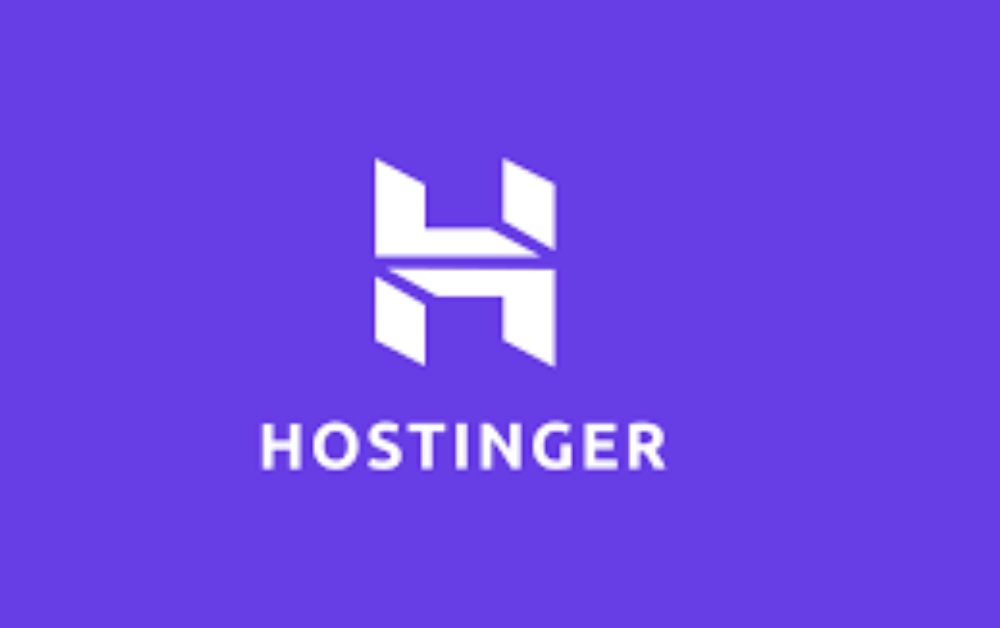
Overview of Namecheap
Hostinger is a well-established web hosting company that has been providing services since 2004. They offer a wide range of hosting plans, including shared hosting, VPS hosting, and cloud hosting. Hostinger is known for its affordable prices and feature-rich plans, making it an attractive option for individuals and small businesses.
In terms of pricing, Hostinger offers competitive rates, starting at just $1.99 per month for their single shared hosting plan. This plan includes 10GB of SSD storage, 100GB of bandwidth, and support for one website. Hostinger also provides a 30-day money-back guarantee, allowing you to try out their services risk-free.
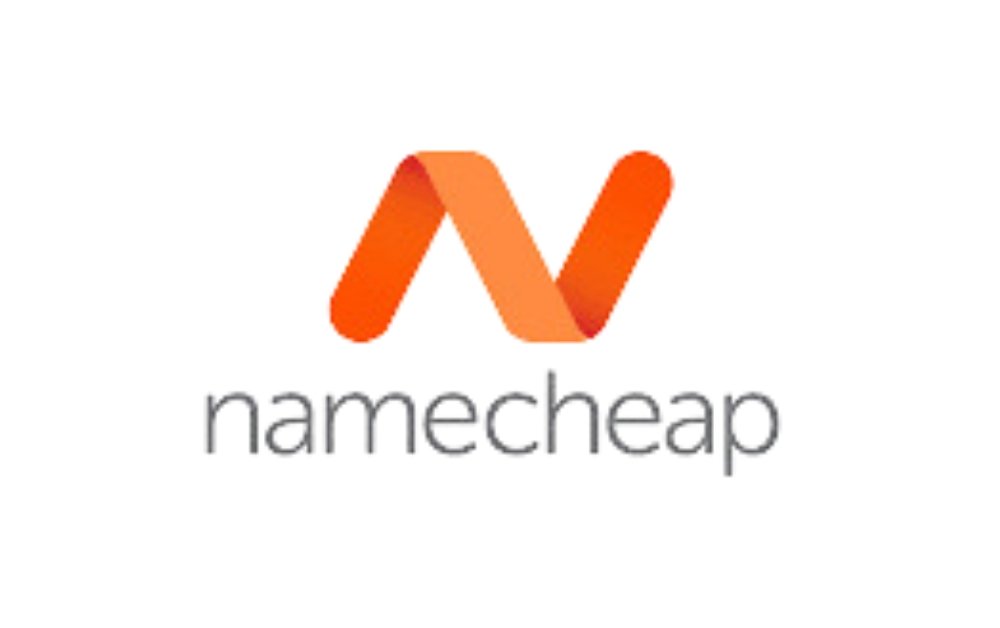
Namecheap is another popular web hosting provider that has been in the industry since 2000. They offer a wide range of hosting options, including shared hosting, VPS hosting, and dedicated servers. Namecheap prides itself on providing affordable and reliable hosting solutions to individuals and businesses of all sizes.
In terms of pricing, Namecheap offers competitive rates, starting at $1.58 per month for their Stellar shared hosting plan. This plan includes 20GB of SSD storage, unmetered bandwidth, and support for up to 3 websites. Namecheap also provides a 30-day money-back guarantee, ensuring customer satisfaction.
Pricing comparison between Hostinger and Namecheap
When choosing a web hosting provider, pricing is a significant factor to consider. Both Hostinger and Namecheap offer a range of plans with varying features and costs. Here’s a breakdown to help you compare:
Shared Hosting:
- Hostinger: Hostinger’s shared hosting plans are known for being very affordable. Their most basic plan, “Single Shared Hosting,” starts at around $1.99 per month with introductory discounts. This plan offers limited resources but is suitable for basic websites with low traffic. As you upgrade to higher tiers (Premium Shared Hosting, Business Shared Hosting), the price increases but provides more storage, bandwidth, and the ability to host multiple websites.
- Namecheap: Namecheap’s shared hosting plans are also competitively priced, with their most basic plan, “Essentials,” starting slightly lower than Hostinger’s at around $1.58 per month with introductory discounts. Similar to Hostinger, Namecheap offers tiered plans with increasing storage, bandwidth, and website hosting capabilities at progressively higher prices.
Renewal Rates: Be aware that introductory pricing is often only valid for the first term (usually 12 or 24 months). Renewal rates are typically higher, so factor that into your long-term budget planning for web hosting costs. Both Hostinger and Namecheap typically have higher renewal rates compared to their introductory offers.
Additional Considerations:
- Free Domain Registration: Some plans from both providers may include a free domain name registration for the first year. This can be a cost-saving benefit, especially when starting a new website.
- Hidden Fees: Carefully review the pricing structure of each plan to avoid any hidden fees associated with essential features like backups, SSL certificates, or additional email accounts. These can add up and affect the overall cost.
Overall:
In terms of starting prices, Namecheap has a slight edge with their most basic plan. However, Hostinger’s introductory discounts can be significant, making them very competitive. When considering renewal rates and the features included in each plan tier, it’s essential to compare them side-by-side based on your specific website needs.
Features comparison between Hostinger and Namecheap
When choosing a web hosting provider, features are just as important as pricing. Let’s delve into a feature comparison between Hostinger and Namecheap, highlighting where Hostinger takes the lead:
Core Features:
- Disk Space and Bandwidth: Both providers offer tiered plans with varying storage and bandwidth allocations. However, Hostinger generally provides more generous allowances, especially in their higher-tier plans. This can be crucial for websites with large amounts of content (images, videos).
- Uptime and Reliability: Both prioritize uptime, but Hostinger often boasts slightly higher uptime guarantees (typically 99.9% or higher) compared to Namecheap. This translates to less downtime and ensures your website is accessible to visitors most of the time.
- Security: Both offer essential security features like firewalls and protection against malware attacks. However, Hostinger may include free SSL certificates and advanced security options (like website vulnerability scans) in some of their plans, while these might be add-ons with Namecheap.
Additional Features:
- Website Builder: Both provide user-friendly website builder tools to help you create a website even without coding knowledge. However, Hostinger’s website builder is generally considered more beginner-friendly and offers a wider range of pre-designed templates.
- Email Accounts: Hostinger often includes a more generous number of free email accounts with their plans compared to Namecheap. This can be beneficial if you plan to create separate email addresses for your website or team members.
- Scalability: Both offer upgrade paths to VPS or cloud hosting for websites experiencing high traffic volumes. However, Hostinger has a wider range of VPS and cloud hosting plans with more granular control options, catering to diverse website needs and growth projections.
Overall:
Hostinger pulls ahead in the features department, particularly with aspects like disk space, bandwidth allocation, website builder ease of use, and free security features. While Namecheap offers competitive pricing, Hostinger tends to bundle more features in their base plans, making them a potentially more cost-effective option in the long run, especially for users who require these additional functionalities.
Remember:
- Needs assessment is crucial. Identify the features that are most important for your website and compare the plans accordingly.
- Not all features are created equal. Evaluate the specific functionalities offered within each plan to determine which provider best aligns with your requirements.
Performance and uptime comparison between Hostinger and Namecheap
Uptime and performance are critical factors influencing user experience and website accessibility. Let’s analyze how Hostinger and Namecheap stack up in these crucial areas:
Uptime:
- Both providers prioritize uptime and offer guarantees typically around 99.9% or higher. This translates to minimal downtime, ensuring your website is accessible to visitors most of the time.
- Independent monitoring services track website uptime for various hosting providers. While results can vary, some reports suggest Hostinger might have a slight edge over Namecheap in terms of consistently achieving their uptime guarantees. However, real-world performance can fluctuate, so it’s wise to research user reviews for the most recent insights.
Performance:
- Server Speed: Both utilize server technologies optimized for fast loading times. However, factors like server location and plan tier can influence website speed.
- Consider server location: If your target audience is in a specific geographic region, choosing a provider with servers in that location can improve website loading times for those visitors. Both Hostinger and Namecheap offer server locations in multiple regions, but Hostinger might have a broader global presence.
- Plan Tier: Higher-tier plans from both providers typically offer better server resources (CPU, RAM), which can translate to faster website loading speeds for resource-intensive websites.
Additional Considerations:
- Content Delivery Networks (CDNs): These distribute website content across geographically dispersed servers, improving loading times for visitors worldwide. While Namecheap offers CDN services as an add-on, some Hostinger plans might include free CDN usage, which can significantly improve website performance.
Overall:
Both Hostinger and Namecheap prioritize uptime and offer technology to ensure fast website loading speeds. However, Hostinger might have a slight edge in terms of consistently achieving uptime guarantees based on some reports. Server location options and CDN availability within the plan structure can also influence performance.
Here’s a recommendation:
- Research user reviews: Look for recent feedback from customers in your region regarding website performance and uptime experiences with both providers.
- Consider your target audience: If your website caters to a global audience, a provider with a broader server network (like Hostinger) could be beneficial.
By combining these insights with your specific website needs and target audience location, you can make a more informed decision regarding which provider offers the optimal performance for your website.
Customer support comparison between Hostinger and Namecheap
When encountering technical difficulties, reliable and responsive customer support is crucial. Here’s a breakdown of how Hostinger and Namecheap compare in this vital area:
Support Channels:
- Both providers offer multiple support channels including live chat, phone support, and email ticketing systems. This allows you to choose the communication method that best suits your needs and urgency.
- Live chat availability: Hostinger generally boasts longer live chat support hours compared to Namecheap. This can be advantageous if you require immediate assistance outside of standard business hours.
Support Quality:
- User reviews suggest a slight edge for Hostinger regarding support responsiveness and resolution efficiency. Hostinger’s customer support is often praised for being friendly, knowledgeable, and able to address issues promptly.
- Knowledge Base Resources: Both providers offer extensive knowledge base articles, tutorials, and FAQs to help users troubleshoot common issues independently. The quality and organization of these resources can also influence the overall customer support experience.
Additional Considerations:
- Community Forums: Active community forums can be a valuable resource for finding solutions and learning from other users’ experiences. While both providers have forums, Hostinger’s forum might be more active and provide a wider range of user-generated solutions.
- Support in Multiple Languages: If English isn’t your primary language, consider if the provider offers customer support in your preferred language. Hostinger offers support in a wider range of languages compared to Namecheap.
Overall:
Hostinger appears to have a slight advantage in terms of customer support. Their longer live chat hours, positive user reviews regarding support quality, and more active community forum can be valuable assets for users who might require frequent assistance. However, Namecheap also offers decent customer support options, and their knowledge base resources can be helpful for self-directed troubleshooting.
Here’s a tip:
- Test the support: Before committing to a provider, consider contacting their customer support through live chat or email with a simple question to gauge their response time and helpfulness. This can provide valuable firsthand insights into their support quality.
By understanding the strengths and weaknesses of each provider’s customer support offerings, you can choose the one that best aligns with your comfort level and anticipated support needs.
User reviews and ratings for Hostinger and Namecheap
While technical specifications are important, real-world user experiences can offer valuable insights when choosing a web hosting provider. Here’s a breakdown of user reviews and ratings for both Hostinger and Namecheap:
Hostinger:
- Advantages: Users often praise Hostinger for its:
- Affordability: Many find Hostinger’s pricing plans to be very competitive, especially with introductory discounts.
- User-friendly platform: The hPanel control panel is generally considered easy to navigate, even for beginners.
- Customer support: Positive reviews highlight the responsiveness and helpfulness of Hostinger’s customer support team.
- Disadvantages: Some user concerns with Hostinger include:
- Uptime: While uptime guarantees are high, a few users might report occasional downtime experiences.
- Renewal rates: Introductory pricing can be significantly lower than renewal rates, so factor in long-term costs.
- Upselling practices: Be mindful of upselling attempts during checkout for additional features you might not necessarily need.
Namecheap:
- Advantages: Users often appreciate Namecheap for its:
- Domain registration: Many find Namecheap’s domain registration services to be very affordable and reliable.
- Performance: Some users report good website loading speeds and uptime experiences with Namecheap.
- Hidden fees: Namecheap is generally praised for having a transparent pricing structure with minimal hidden fees.
- Disadvantages: Some user concerns with Namecheap include:
- Customer support: While they offer support channels, responsiveness and resolution times might be slower compared to Hostinger.
- Limited features: Basic plans might lack some features that Hostinger includes, requiring upgrades for essential functionalities.
- Fewer server locations: Compared to Hostinger, Namecheap might have a smaller global server network, potentially impacting website loading speeds in certain regions.
Where to Find Reviews:
- Independent Review Websites: Search for reputable review websites specializing in web hosting services. These platforms often aggregate user reviews and provide ratings based on various factors like features, performance, and support.
- Social Media: Check social media platforms like Twitter or Facebook to see what users are saying about their experiences with both providers.
Remember:
- Reviews can be subjective. Read a variety of reviews from different sources to get a well-rounded perspective.
- User experiences can vary. What works well for one user might not be ideal for another. Consider your specific website needs and priorities when evaluating user reviews.
By combining user reviews and ratings with the technical comparisons provided earlier, you can make a more informed decision and select the web hosting provider that best aligns with your budget, website requirements, and desired level of customer support.
Pros and cons of Hostinger and Namecheap
Here’s a comprehensive breakdown of the pros and cons of both Hostinger and Namecheap, summarizing the key points discussed throughout this article:
Hostinger:
Pros:
- Affordable pricing: Competitive plans, especially with introductory discounts.
- User-friendly platform: Easy to navigate control panel suitable for beginners.
- Scalable solutions: Offers plans for various website needs, from basic to high-traffic.
- Good customer support: Responsive and helpful support team with multiple channels.
- Free features: Many plans include free domain registration, email accounts, and website builder tools.
Cons:
- Limited server locations: Might impact website loading speeds in certain regions.
- Focus on shared hosting: Limited options for high-traffic websites compared to VPS or dedicated hosting.
- Upselling practices: Beware of upselling attempts during checkout.
- Renewal rates: Introductory discounts can be significantly lower than renewal rates.
Namecheap:
Pros:
- Competitive pricing: Affordable plans, especially for domain registration.
- Transparent pricing: Minimal hidden fees compared to some providers.
- Decent performance: Good website loading speeds and uptime for many users.
- User-friendly website builder: Easy-to-use tool for creating websites without coding.
- Active community forum: Provides a platform for finding solutions and learning from other users.
Cons:
- Customer support: Response times and resolution efficiency might be slower compared to Hostinger.
- Limited features: Basic plans might lack essential features offered by Hostinger.
- Fewer server locations: Smaller global network could impact website loading speeds in specific regions.
- Limited VPS/cloud options: Fewer upgrade options for high-traffic websites compared to Hostinger.
Choosing the Right Provider:
- Budget: Consider your budget and how much you’re comfortable spending on web hosting. Both offer affordable plans, but Hostinger might be slightly cheaper with introductory discounts.
- Website Needs: Identify your website’s requirements like storage space, bandwidth, and projected traffic. Choose a provider offering a plan that can accommodate your website’s growth.
- Technical Expertise: If you’re a beginner, Hostinger’s user-friendly platform might be easier to manage. For more experienced users, Namecheap’s transparent pricing structure can be appealing.
- Customer Support: If you anticipate needing frequent assistance, Hostinger’s responsive and helpful support team could be a significant advantage.
Ultimately, the best web hosting provider depends on your specific needs and priorities. By carefully considering the factors outlined above, you can make an informed decision and select the platform that will empower you to build and maintain your thriving online presence.
Conclusion and recommendation
The journey to selecting the perfect web hosting provider can feel overwhelming. However, by understanding your website’s needs and carefully evaluating the strengths and weaknesses of different providers, you can make an informed decision. This comprehensive comparison between Hostinger and Namecheap has hopefully shed light on the key factors to consider.
Hostinger emerges as a strong recommendation for a variety of website types and user profiles. Their competitive pricing, user-friendly platform, scalable solutions, and responsive customer support make them a compelling choice, especially for beginners venturing into the world of web hosting. While Namecheap offers competitive pricing and decent performance, Hostinger’s overall feature set, wider server network, and emphasis on user experience position them favorably.
Remember: The best web hosting provider is the one that best aligns with your specific website needs and budget. Utilize the information provided in this article as a stepping stone for further research and don’t hesitate to explore trial periods or money-back guarantees offered by some providers to get a firsthand feel for their platform.
Ready to launch your online presence? Head over to Hostinger’s website and explore their plans to find the perfect fit for your web hosting needs. With the right foundation in place, you’re well on your way to building a successful website and achieving your online goals.
SHARE:



